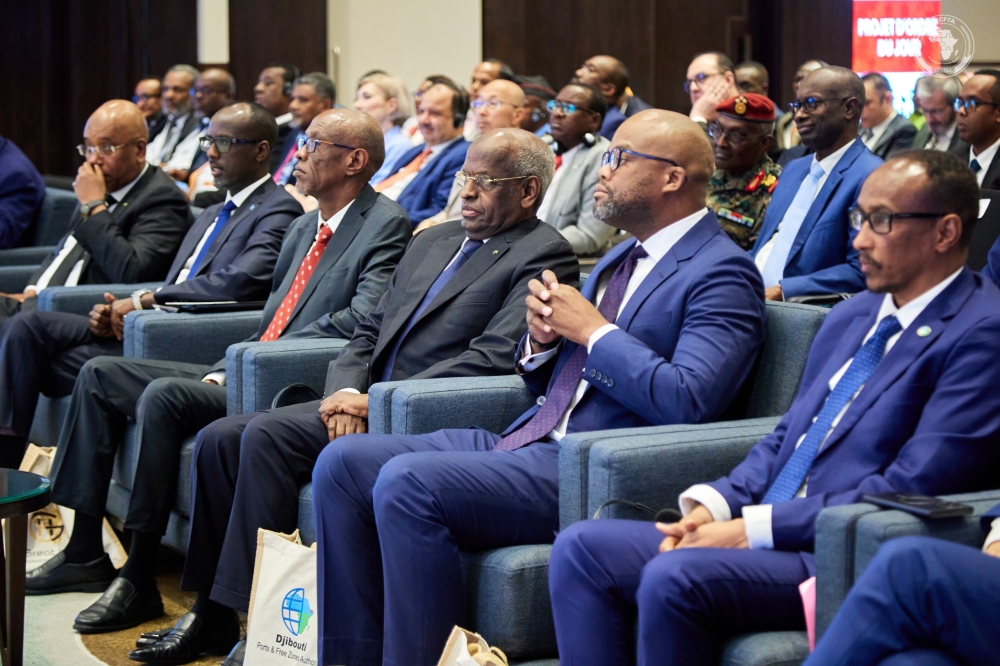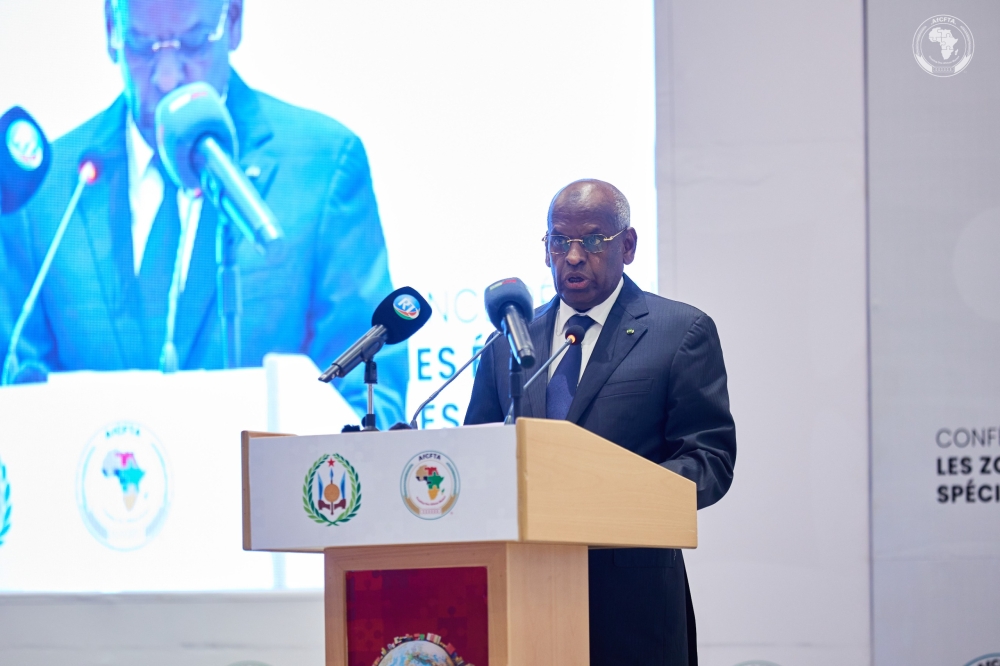

The current global tariff crisis, especially the US-imposed ones on African countries, is an opportunity of resilience by focusing on increasing intra-African trade, according to Wamkele Mene, the Secretary General of the African Continental Free Trade Area (AfCFTA).
Experts have termed US President Donald Trump administration’s series of tariff hikes between January and April as the beginning of a new economic era, changing the dynamics of global supply networks, international relations and economic policy.
ALSO READ: US tariff hikes raise tensions at WTO
The tariff hikes touched virtually all goods imported into the US, including many African countries that were exporting under the African Growth and Opportunity Act (AGOA). Rwanda was no longer a member since 2018.
During the opening of AfCFTA Regional Conference on Special Economic Zones in Djibouti, on April 21, Mene acknowledged that African countries will be negatively impacted by the imposition of these tariffs. However, he noted, the crisis must be seen as an opportunity.
"We must take this crisis as an opportunity for our continent to seize the moment to deepen and accelerate intra-Africa trade,” he said, adding that the last session of the Council of Ministers that took place a week ago agreed on having a coordinated continental approach to respond to the tariffs and accelerate the implementation of AfCFTA.
He noted that the modalities for intra-Africa liberalisation of trade will respond to the challenge of the day through the acceleration of Africa&039;s industrial integration as well as boosting special economic zones for production.


"We are indeed navigating a very challenging global landscape that will require strategic responses, that will require us to double down on economic resilience and diversification of our export markets.”
By collectively working to create a more resilient economic foundation, he said, "We can achieve greater self-sufficiency as a continent, increase trade between African countries, and develop truly continental value chains that benefit all countries across our continent.”
Out of 55 African Union state parties, 49 have successfully undergone the ratification process, meaning that they have accepted the obligations to reduce and eliminate intra-African barriers to trade. By creating a single African market of services, merchandise goods, and the digital economy, the AFCFTA offers unprecedented opportunities for increasing intra-Africa trade, attracting investment, and reducing dependence on others.
According to the African Economic Zones Outlook, Africa is home to more than 200 special economic zones, with over 70 projects currently under development.
To support this momentum, the Assembly of Heads of States and Government of the African Union adopted a ministerial regulation on the treatment of products from SEZ to ensure that goods and services that are produced and originate in special economic zones (SEZ), and that meet the rules of origin are now fully integrated into Africa's single market.
Mene said that this move will drive the competitiveness of special economic zones, enabling them to produce at cost-effective rates, and contribute to Africa's industrial development. He noted that resilience is important to ensure that Africa's economies are able to navigate the current turbulence and external shocks that the multilateral trading system is undergoing.
In the rising global tariff war, Mahamoud Ali Youssouf, the new chairperson of the African Union Commission, reiterated that intra-African trade and its growing importance represent an alternative and an imperative necessity, pointing out that the AfCFTA’s Guided Trade Initiative must be expanded, non-tariff barriers between African countries addressed, and AfCFTA mechanisms operationalized.
He said: "Difficult times must be expected, but this may also be the time to turn challenges into opportunities. SEZ will be one of the levers needed to adapt to the new global situation.”


